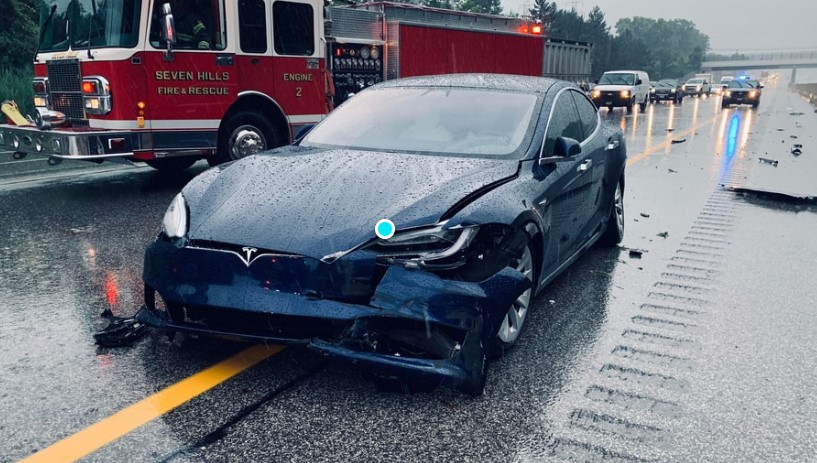More than 20% of the US has stopped buying extra coverage on their car insurance policy. We’re exploring the factors causing a 19 to 22% increase in premiums from one year to the next. We’re discussing the projected 20 to 30% increase in car insurance by 2024 and the role of telematics or usage-based insurance programs in combating rising prices. Not only that, but we’re also looking at how low-mileage drivers can benefit from specific insurance programs.
The Impact of Territory-Based Rates on Car Insurance Costs
Why Are 20% of US Car Owners Opting Out of Extra Car Insurance Coverages?

More than 20% of the US has stopped buying the extra coverages on their car insurance policy. Let’s dive a little deeper and find out exactly what’s happening and why these policies are so far from what they used to be a few years ago.
What Factors are Driving the Increase in Car Insurance Premiums?
Essentially, current insurance is being labeled as unaffordable in a recent report. According to Property 360, we’re seeing about a 19 to 22% increase in premiums that’s from one year to the next without any changes. So part of it, yes, we know is the value of the car and the repairs and the length, longevity, and all of those precious metals as we talk about. But why is the car insurance going up so much?
How Effective is Shopping Around for a Better Car Insurance Deal?
I don’t necessarily recommend that you do what every article under the sun says, which is shop around. That’s not always the answer. Sometimes you don’t just need a new policy, you have to review what you’ve got first. Find out what may or may not have changed first before you jump into that boat.
Preparing for the Projected 20-30% Increase in Car Insurance by 2024
Projected 20-30% Increase in Car Insurance by 2024?
Yes, I think that you’re going to see a 20 to 30 plus increase on your car insurance going into 2024 and going further. Now, I think it’s going to level off. So what we’re going to call insurance got cheaper is that everybody’s gone up by then. So even if you leave the company you’re with now, doesn’t necessarily mean they’re going to be the best option later.
How are Telematics and Usage-Based Insurance Programs Helping Drivers Save?
A lot of people, without changing anything, are doing what’s called telematics or UBI, a usage-based insurance program. And what that does is it tracks your driving record. Honestly, a ton of my videos on here, which are probably in my top videos, are me testing and going through and reading the results and what those are.
What are the Benefits and Drawbacks of Continuous Tracking in Usage-Based Insurance?
Be careful because some companies go beyond the 90 days and do it forever, so personally, I’m not a fan of those. And if they’re going to track me forever, then why do I have to constantly have to prove myself? I get it, it makes sense if you become a bad driver one year, that’s few and far between. But there are so many other options that you don’t have to do that with.
How Can Low-Mileage Drivers Benefit from Specific Insurance Programs?
The majority of people, and I think it said 40 or 52% of the people, are using the uses-based Insurance to combat that. The positive is if you know you’re driving low mileage, companies like Nationwide are going to give you a better deal.
They have something that’s called smart miles and smart ride. The smart ride is that test that program that does it, but they also have the smart miles which means you pay a lower base fee. And then you can just pay to have that usage tracked for the first 90 days. That’s one of the benefits that they have. So those who are driving less than 8,000 m a year might get a better price on that policy.
Government Responses to Rising Car Insurance Rates
Why Are Insurance Companies Raising Rates?
So they’re all trying to play the game of how do we stop the losses that we have. And this is one of those scenarios where the insurance companies aren’t just saying I want to make more money, they’re losing money this time.
11 What Should You Look for in an Insurance Agent?
That’s why if you go to an agent, make sure that you’re working with one that’s trustworthy. Check their Google reviews, look at their website, and make sure they’re not just doing things to make a quick Buck.
12 What Can We Expect from Car Insurance Companies in the Future?
So 2025 and going forward, I think what’s going to happen is we’re going to see lawsuits against the insurance companies because they don’t have a way to pivot quickly enough. Honestly, I don’t think they will pivot much if at all.
Exploring Discounts: A Key Strategy to Combat Overpriced Car Insurance
13 How Can You Combat Overpriced Car Insurance?
The next biggest way that you can combat that is to check the discounts that you have. There are so many discounts that you can get on your insurance, it’s not just the usage-based Insurance.
What is the Outlook for Car Insurance in Outlier States Like California and Florida?
For those of you that are in the outlier states, so you got California and Florida, unfortunately, I don’t think you guys are going to see anything positive anytime soon. You’re going to be a little behind on that trail of the prices evening out.
How is the Government Responding to Rising Car Insurance Rates?
Now the government, I understand as much as everyone’s frustrated with them, they’re trying to fix it. They’re trying to keep the insurance companies in-house but guess what that means? They’re going to raise their rates more than they normally have in the past.
Why Are Insurance Companies Raising Rates in Certain Territories?
That’s one of the biggest pieces that they’re having trouble with because they’re trying to price their models for certain weather conditions, for certain claim areas, for certain things without letting them be discriminatory.
How Are Changes in Territory Definitions Affecting Car Insurance Rates?
Now you may have been in a great zip code before, but because a lot of these states are breaking them into territories, you’re now mingled with an okay territory. Your rate may be affected because of the people around you. You’re at a higher risk for claims.
